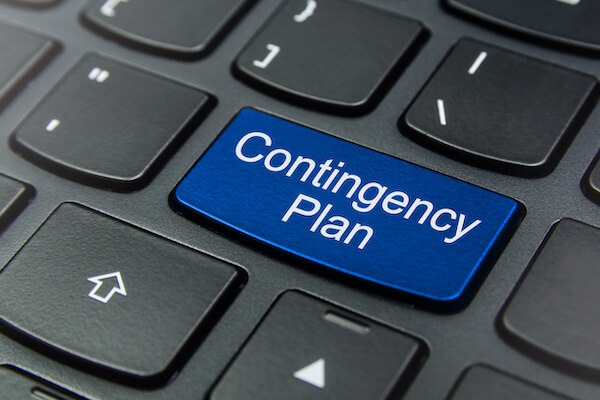[:en]Even though Japanese prime minister Shinzo Abe now has the power to enact a state of emergency, he has hesitated doing so citing lack of evidence so far for meeting the conditions. Yet lack of evidence and evidence of lack are not the same thing, and you need not make the same mistake in leading your business.
Japan, like the United States, has yet to conduct widespread COVID-19 testing, unlike South Korea, Taiwan, and Singapore which have all managed to contain the outbreak—at least for now. The spread of COVID-19 infection might be an exception in Japan compared to other countries, as Prime Minister Abe seems to assume. Then again, it might not. The prime minister’s own team of advisers have said that we might very well see a rapid increase of cases in the coming weeks. The reality is that no one really knows. Japan simply lacks the data.
In a time of crisis, just like in strategy, it is not certainty that you need, but rather a sober cataloging of assumptions, when and how to validate these continuously, and plans of contingent action for when your assumptions turn out to be wrong.
So if you assume that Abe is right, that’s fine, but what is the contingency if Abe turns out to be wrong? What will you be monitoring continuously to validate or invalidate your assumptions? What will trigger your contingent action? Do you have a contingency for a possible state of emergency and lockdown in Japan should these happen, even if you assume right now that they won’t? Do you have a contingency for continued moderate social distancing, even if you assume a state of emergency is most likely to be declared?
My most successful clients do. If you don’t, you ought to be working on these right away.
It is not certainty in what will happen in the future that builds confidence and reduces anxiety, but rather certainty of your capability to handle whatever happens, come what may, even though you don’t know what the future portends. The same is true of your staff. Contingency planning is not just for the health of your business, but also for the health of your state of mind and that of your staff.
It is not certainty in what will happen in the future that builds confidence and reduces anxiety, but rather certainty of your capability to handle whatever happens. Click To TweetPersonal uncertainty matters too, just as much as business uncertainty, both for you and your staff. A non-Japanese executive who is currently working for her company from home confided in me the uncertainty and anxiety she feels. What if she or her children should get sick? Are there English speaking doctors she knows she can see? Can she access services of a hospital? Who will look after her kids should she and her husband get sick at the same time?
Her anxiety around these questions were without a doubt impacting her performance as well as her mental state, even though most of these questions are relatively straightforward to address, if not easy to do so, if she knew who best to ask. Clear contingent action for these eventualities would go a long way to allay her fears, and I am certain she is not alone.
If you want to lead your business and your people through this crisis in stride, think soberly in terms of contingencies, and not just for your business. Don’t underestimate the importance personal contingency planning for you and your staff. After all, no matter how confident you are in the contingencies for your business, it’s your staff who must execute. Make sure your staff are confident in their own ability to prevail personally come what may. It is only upon the personal confidence that you can build the same confidence for the business.[:ja]日本の安倍晋三総理は緊急事態を宣言する権限を持っていますが、十分な状況、証拠が揃っていないという理由から、今のところそれを行っていません。しかし、証拠が十分でない、というのと十分でないという証拠があるというのとは、別物です。ビジネスでのリーダーシップでは、そのような間違いを犯してはなりません。
米国と同様、日本ではまだ大規模なCOVID-19の検査は行われていません。一方でとりあえずは伝染のコントロールに成功している韓国、台湾、そしてシンガポールでは、大規模検査が行われています。安倍総理は、日本でのCOVID-19の広がり方は他の国と違って独自のものであると考えているようです。しかしそうでないという可能性もあります。総理の諮問機関によりますと、この先の数週間のうちに感染人数が急増する可能性は十分にあるとのこと。結局何が起こるか誰もわからないというのが現状なのです。日本には十分なデータがないのですから。
戦略と同じく、危機状況下で必要なのは確実さではなく、考えられる想定事項を冷静に書き出し、それらを継続的にいつ、そしてどうやって判断し、もし想定事項が間違っていた時にはどのようにその危機に対応するかというプランです。
安倍総理の言っていることが正しいと考えていらっしゃるのであれば、もし実はそれが結局間違いだった場合、どのような対策を考えていらっしゃいますか。ご自分の考えが正しいか、あるいは間違っているかを常に判断し続けられるためには、何を観察していることが必要でしょうか。危機管理プランを発動させるのは、何があった時ですか。日本が危機状況やロックダウン状態になるなど考えていらっしゃらないかもしれませんが、もしそうなった場合の危機管理プランはお持ちですか。もし日本が非常事態を宣言することとなると既に考えていらっしゃったとしても、この先もし適度な社会距離戦略が続くこととなった場合に対する対応法は考えていますか。
私の成功しているクライアントの方々は、こういったことをちゃんと考えていらっしゃいますし、もしまだそうしていない方々は、今すぐ取り掛かっていただきたいと思います。
自信を生み出し不安を減らすのは、将来起こることの確実性ではなく、何が起ころうとそれに対応できる自分の能力についての自信です。将来の見通しを立てらないでいるとしても、それは同じです。これは社員についても言えることです。危機管理計画とは、単にビジネスを健全状態に保つためだけのものではなく、あなたや社員の精神上の健康さのためでもあるのです。
自信を生み出し不安を減らすのは、将来起こることの確実性ではなく、何が起ころうとそれに対応できる自分の能力についての自信である。 Click To Tweetビジネス上の不確かさと同様、あなたと社員の個人的な不確かさにも目を向けなくてはなりません。ある会社の役員の方から打ち明けられたのですが、彼女は現在在宅勤務となっており、不確かさや不安を感じているのだそうです。自分、あるいは子供達が病気になったらどうすれば良いのか、英語の話せる医者に診てもらう事はできるだろうか、病院のサービスを受ける事は可能だろうか、自分と夫が同時に病気になったら誰に子供を見て貰えば良いのだろうか、といった考えで頭が一杯になるといいます。
こういった疑問からくる不安はもちろん、彼女の精神状態も仕事上の効率にも影響を与えていました。もっともこれらの疑問の殆どは、簡単とはいえなくとも、誰に質問すれば良いのか、ということさえ知っていれば、比較的シンプルな解決方法があるものです。こういった想定ケースに対してクリアな対策方法を用意しておけば、彼女の不安を取り除くのにかなり役立つでしょうし、彼女のような不安を抱えている人は他にも多く存在する筈です。
現在の危機に冷静に対処し自分のビジネスとその社員をリードしたいと考えているのであれば、ビジネスのことだけ考えるのではなく、落ち着いて危機管理という視点から考えて下さい。ご自分、そして社員達の個人レベルでの危機管理の重要さを軽く見てはいけません。結局のところ、あなたがどれだけビジネスの危機管理プランに自信を持っていたとしても、そのプランを実行できるのは社員なのです。何が起ころうと、スタッフ個人個人が自分で対処できる自信を持っていることを確認して下さい。個人レベルでの自信が存在して初めて、ビジネスに対する同様の自信が作り出せるのです。[:]


